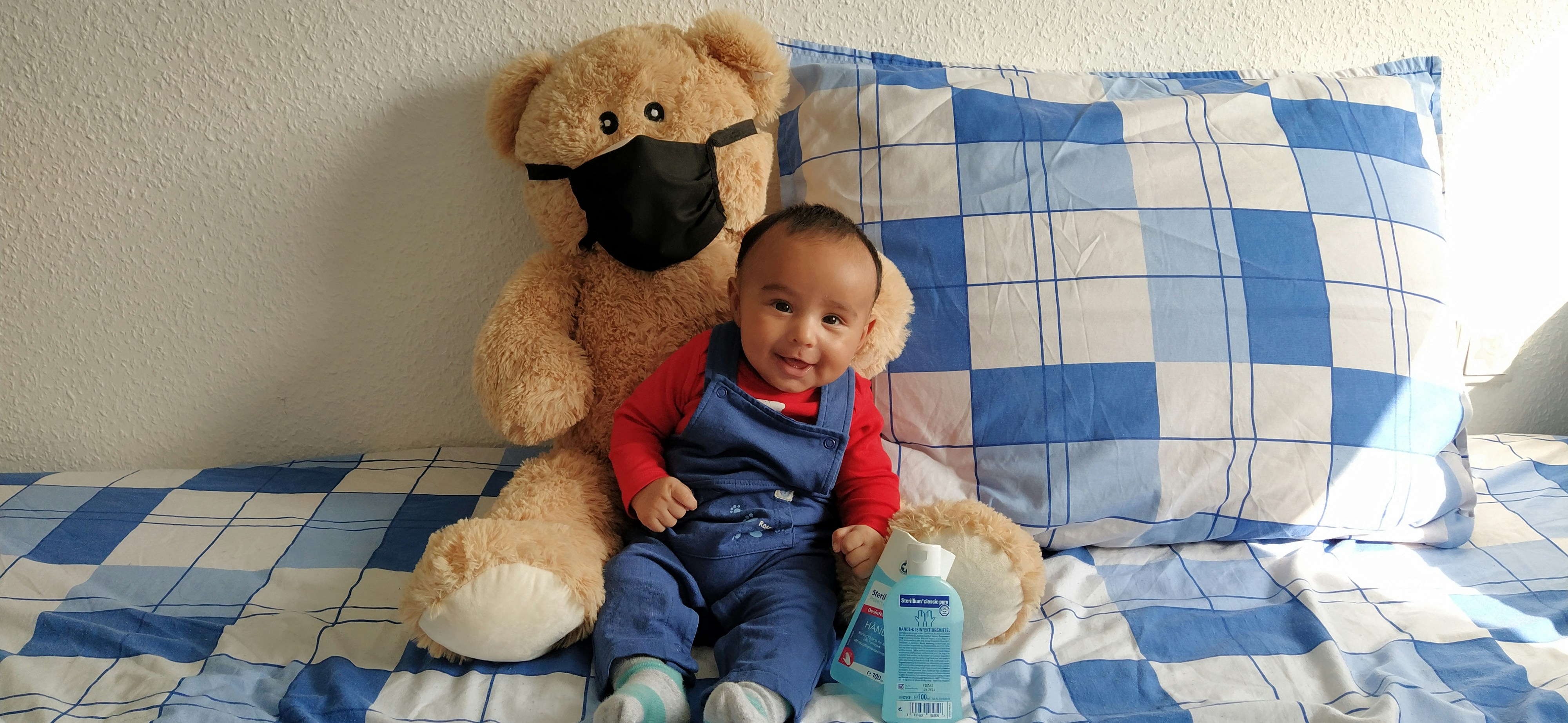Reviewed by: Mark T. Ogino, MD and Elana Pearl Ben-Joseph, MD
Photo by Hira Sundus on Unsplash
Key steps include:
- social distancing (also called physical distancing)
- washing hands well and often
- for adults and kids over age 2, wearing a mask or face covering when out in public
With communities reopening, wearing masks in public is even more important. Most states have orders that require people to wear a mask in public. But kids must be over age 2 to wear masks. So parents might wonder how they can help protect their babies and toddlers.
Why Should People Wear Masks?
Coronavirus can spread when people breathe, talk, cough, or sneeze. When someone wears a mask, it keeps the virus from reaching other people. This is true even for people who feel fine and have no symptoms because they can still be infected and not know it.
Wearing a mask also can stop the virus from reaching you. If everyone wears a mask when they're out in public, fewer people will get sick. And because children under 2 years old can't wear masks, they're protected from infection when people around them do.
Why Shouldn't a Baby or Toddler Wear a Mask?
Babies and toddlers under 2 years old shouldn't wear a mask because:
- They have smaller airways, so breathing through a mask is harder for them.
- If it's hard for them to breathe and they can't tell anyone or take the mask off by themselves, they could suffocate.
- Some homemade masks might have pieces that a baby could choke on, such as strings or elastic bands.
- They will likely try to remove the mask, causing them to touch their face a lot. This can increase their risk of catching and spreading the virus.
Can Babies and Toddlers Get Infected With the Coronavirus?
While most COVID-19 infections have been diagnosed in adults, kids can get infected. In children, the virus sometimes causes a mild illness, and often causes no symptoms at all. But some babies and children have gotten very sick from the virus, sometimes weeks after becoming infected. Babies and toddlers can't wear a mask, so it's important to protect them in other ways.
How Can I Protect My Baby or Toddler From Coronavirus Infection?
You can protect your little one by avoiding large crowds and keeping a safe distance (at least 6 feet) from other people when out of the house.
At home and in public, do all you can to help stop the spread of the virus:
- Avoid people who are sick.
- Wash your hands well and often, and teach others in your home to do the same. This is especially important:
- when you go back into your home from being outside
- before handling your child
- before breastfeeding or preparing a bottle or food
- Clean surfaces and objects that people touch a lot (like doorknobs, countertops, and cellphones).
- Try not to touch your eyes, nose, and mouth.
- Sneeze or cough into a tissue or your elbow, not your hands.
- Wear a mask at home if you are sick. Try to limit contact with your child until your symptoms have stopped.
- If you take your child out in an infant carrier, you can place a blanket over the carrier while it's within your view. Make sure the blanket doesn't touch the baby. Wipe down the carrier or stroller when you get home.
Can I Take My Child to the Doctor's Office for Vaccines and Other Care?
Yes. Doctors' offices are taking steps to keep patients safe. These include regular deep cleaning, limiting the number of people in waiting areas, screening people who enter the building, and requiring masks for anyone over 2 years old.
When you call, ask the staff what they're doing to keep patients safe so you can be prepared. For example, they may allow only one parent or caregiver to go with the child.
During this time, stay in touch with your child's doctor about:
Vaccines and well visits. Keeping your child's vaccines up to date is a key way to keep your child healthy. Ask how your health care provider is giving vaccines and doing regular checkups. Some do well visits through telehealth while others might postpone an in-person visit. For newborns or children with complex medical conditions, they may want to schedule an in-person visit right away. They will work with you to answer your questions and make sure your child gets any needed vaccines and checkups.
Sick visits. If you think your child is sick, don't wait to get care. Call your doctor for advice or instructions.
Call 911 right away if your child might have a health emergency. Signs include your child turning blue, not breathing, being very sleepy or hard to wake up, or being unconscious.
Read more at kidshealth.org














